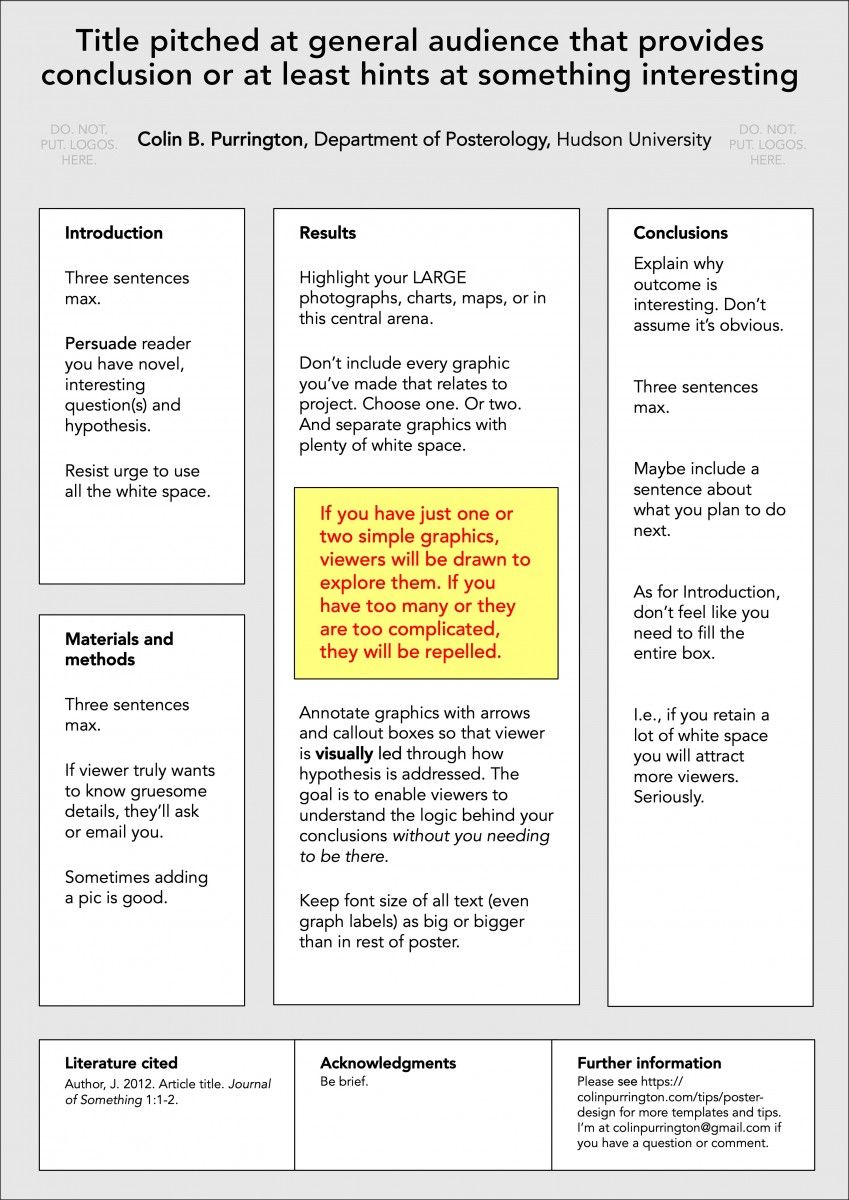There’s been a frenzy of discussion on Twitter this summer about conference poster design (see #betterposter, #betterposters, #butterposter) so perhaps it’s a good time to re-share my Powerpoint templates. If you’re new to posters please see my page, “Designing conference posters” for details.
Below is a standard horizontal template. I recommend 500-800 words and 1 or 2 graphics that are understandable without you needing to explain them.
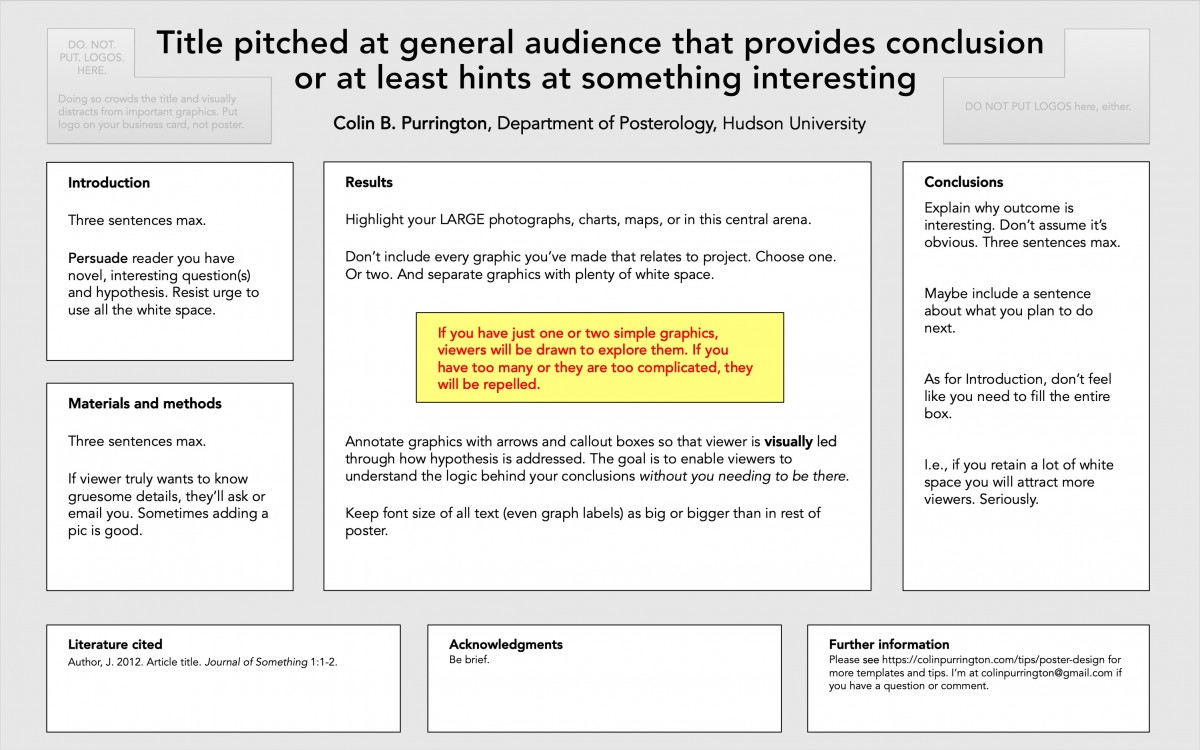
Note that there is no requirement for the text boxes to have a line around them — it’s easy to set line width to zero. And if you want to delete the background color (gray, here), you can eliminate the “rectangles within rectangles” look. Totally up to you.
If you want to include a QR code, put it at the bottom so that it doesn’t distract from your interesting graphs and illustrations. Like this:
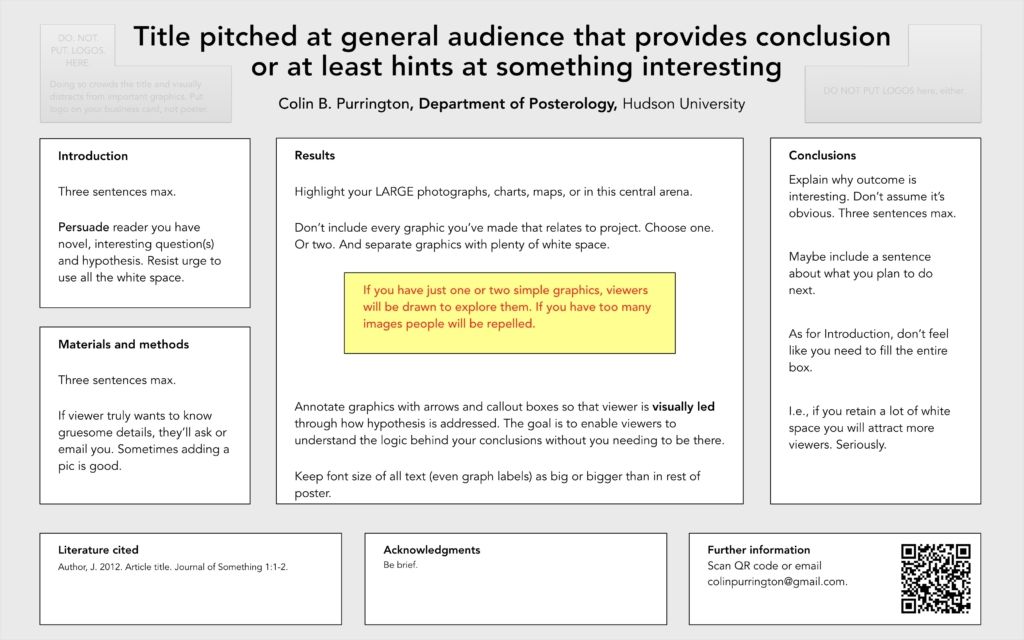
But be cautious about including a QR code. By design it invites a viewer to fire up their camera phone, and I’d wager that most will also take a pic of your entire poster. So skip the QR code if you don’t want people to take pics of your poster. A compromise is to print business cards that have the QR code (as well as poster title, your name, your email address) and then leave them in an envelope pinned next to your poster (“please take one!”).
Here’s a template that moves the Literature cited, Acknowledgements, and Further information to the far right column … which causes the Materials & methods and Results areas to have more room. But the Conclusions box gets squished (such is geometry).
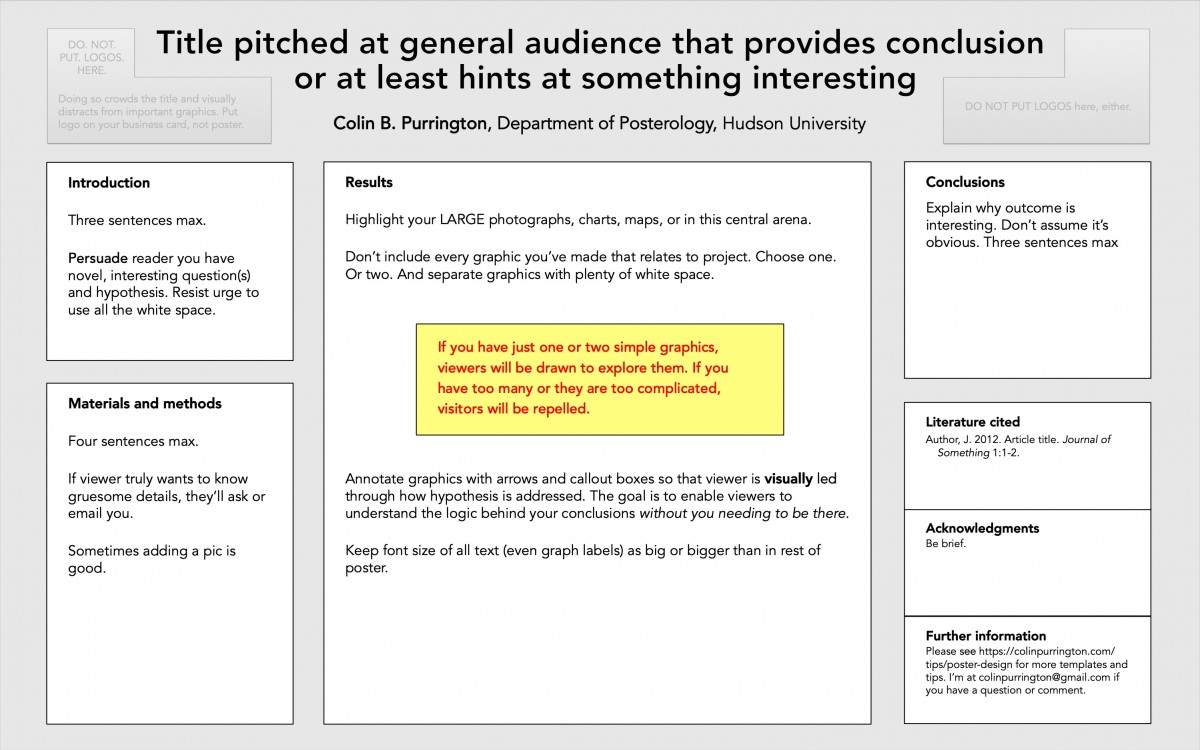
Here’s a template that might work for a humanities topic. I’ve chosen to have a question/result/conclusion flow (from left to right) inside the main arena, but you can always rearrange. There are also no rules about section names — just redo those, too.
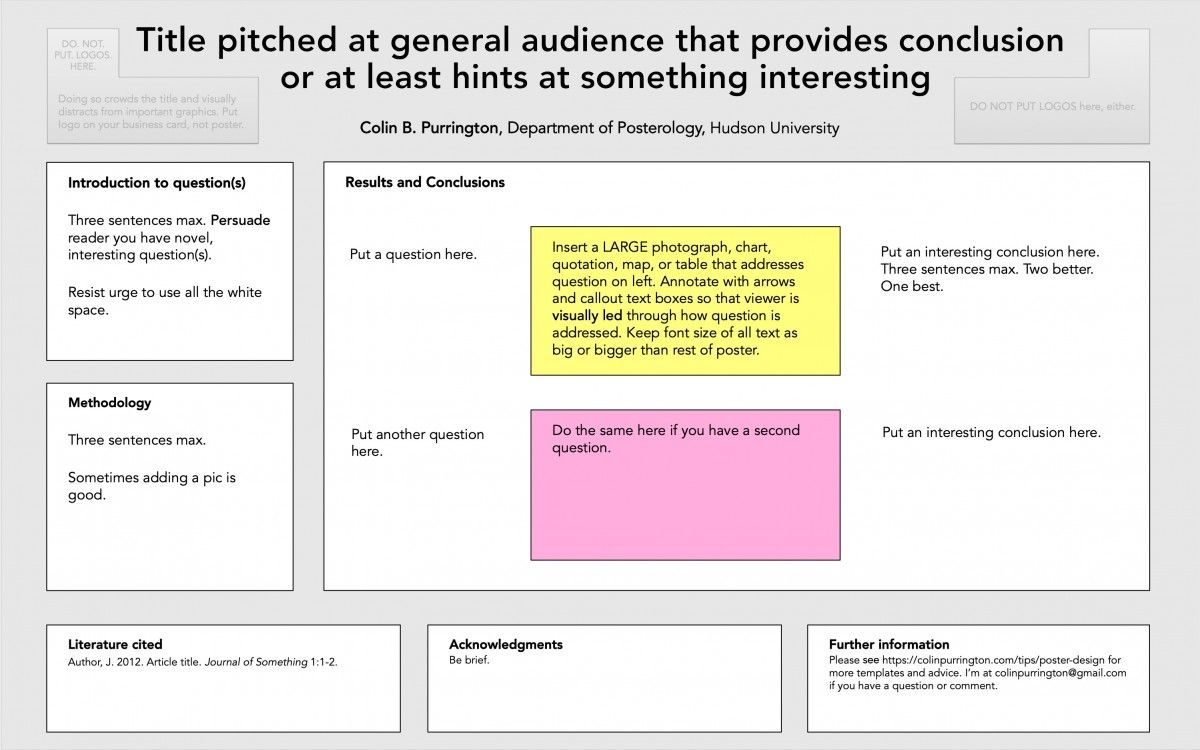
The final template is a portrait-style one. For this orientation I think it’s critical to put the least important sections on the very bottom (that position is really hard to read without stooping).
If you’d like to read an article about the better posters frenzy, here’s one from Inside Higher Education in which I’m quoted a few times.

